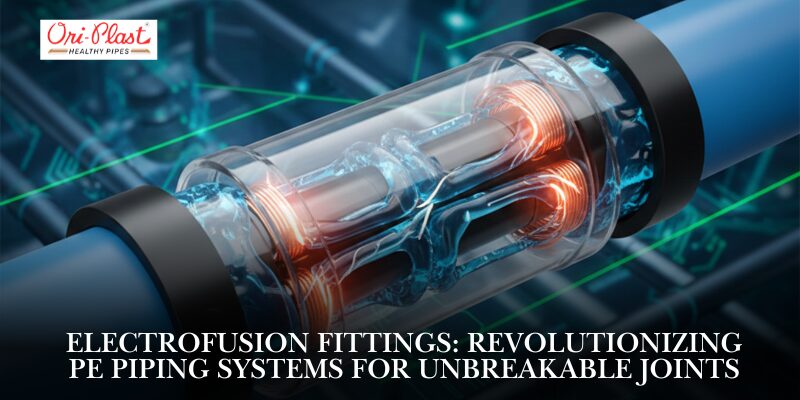In India, one of the most crucial infrastructure investments is the development of a safe and reliable natural gas transport system. This system must be able to transport large volumes of fossil gas over long distances, often in challenging terrain and harsh weather conditions.
One of the most vital choices that must be made when developing a natural gas transport system is the type of pipe that will be used. Steel pipes have been traditionally used for this purpose, but more recently, polyethylene (PE) pipes have become an increasingly popular choice due to their many advantages.
In this blog post, we will discuss the top 9 advantages of using PE pipes for natural gas distribution , including their high strength, corrosion resistance, and flexibility.
Top 9 advantages of using PE pipes for natural gas distribution
1) Corrosion and Abrasion Resistance: PE pipes offer superior resistance to corrosion and abrasion when compared to other types, making them an ideal choice for the task. Fossil gas is a highly corrosive substance. And over time, it can cause damage to pipes made from traditional materials such as metal. PE pipes are made from a type of plastic that is more resistant to corrosion and abrasion, meaning they will last longer and require less maintenance over time.
2) Extreme Flexibility: The extreme flexibility of PE pipes allows them to be installed in a wide variety of locations and settings. That is especially beneficial for fossil gas pipelines, which often need to be installed in remote and difficult-to-reach areas.
3) Lightweight and Easily Stored: When moving fossil gas from one location to the other, one of the most important considerations is the weight of the pipes. PE pipes are made of polyethylene, which is a lightweight plastic material. That makes them much lighter than metal pipes, which can be a significant advantage during installation and transportation.
PE pipes are also much easier to store than metal pipes. They can be coiled and stored in a small space, which makes them ideal for use in remote areas. Overall, the benefits of using PE pipes for fossil gas transportation are clear. They are lightweight and easily stored. That makes them a convenient and practical option for a variety of applications.
4) Cost-Efficient: There are a variety of reasons why polyethylene (PE) pipes are a cost-efficient option for the task. For one, PE pipes are strong and durable. That means they can withstand high pressures and temperatures. That makes them less likely to break or leak. In turn, it can save you money on repairs and replacement costs.
Additionally, PE pipes are flexible. That makes them easier to install in a variety of settings. Finally, PE pipes are resistant to corrosion, meaning they will last longer and require less maintenance over time.
5) Resistance to stress cracking: Fossil gas transportation can be challenging because the gas is under high pressure. That can put a lot of stress on the pipes used to transport the gas, which can lead to cracking and leaks. The material used in making PE pipes is resistant to stress cracking. That makes it an ideal choice for moving fossil gas, as it is less likely to crack and leak under high pressure.
6) Low coefficient of friction: The lower coefficient of friction in PE pipes reduces the wear and tear on the pipes. That means they will last longer and require less maintenance over time. That can save money on repairs and replacements. And it can also reduce the risk of accidents and leaks.
7) Excellent impact resistance: When the PE pipe gets hit by a heavy object, it is much less likely to break than a pipe made from another material. That makes it a more durable option for gas transportation. Also, it is an important safety feature, as a broken pipe can release gas and cause a fire or explosion.
8) Resistance to microbiological attack: PE pipes offer superior resistance to microbiological attack compared to other types of piping materials. That is due to the material's impermeability, which prevents the growth of bacteria and other microorganisms. Also, this is a notable advantage when transporting natural gas. That is because microorganisms can cause severe corrosion and clogging problems in gas pipelines.
9) High-strength: PE pipes are made from a type of plastic that is extremely strong and durable. That makes them ideal for transporting fossil gas over long distances, as they are less likely to break or leak.
Conclusion
In conclusion, there are many benefits to using PE pipes for transporting fossil gas. PE pipes are high-strength, corrosion-resistant, and flexible, making them an ideal choice for gas transportation. If you are looking for the best pipe manufacturer in India, look no further than us. We have the experience and expertise to provide you with the best pipes available.




